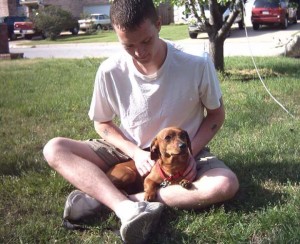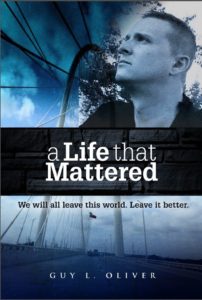As I contemplate the draw of the Maelstrom and the descent of my family into the angry vortex of my son’s addiction, I contemplate more than anything the denial of truth addiction foments. The worst parts of addiction are the lies.
 When we think of lies we tend to imagine them in individual terms, utterances from human lips intended to deceive. But intention has no place in the world of the addict. This thing that compels the human to act against his will of self-preservation obliterates any awareness of truth or reality.
When we think of lies we tend to imagine them in individual terms, utterances from human lips intended to deceive. But intention has no place in the world of the addict. This thing that compels the human to act against his will of self-preservation obliterates any awareness of truth or reality.
The sense of what is true becomes lost in a sea non-truths that refuse to comport with reality. In my experience, the very sense of reality itself ceases to exist in the addict and how he deals with everyone around him. He ceases to understand what is real or imagined and things once known as certain can be transformed into things that no one but the addict recognizes.
As my son’s addiction was galvanized with his person, he craved a relationship with me that was at once so accessible yet so inconceivable to him, that it often seemed we were in different dimensions much of the time. At least, that is my recollection.
I would reach out to him by phone and my calls went unanswered yet I would hear the rumors—the stories of my absence and the pain it caused him. It was a sense I’m certain justified and even fed his addiction. What he was unable to see and understand was that my absence from his life was a thing of our own creation.
It was a result of his doing through unanswered phone calls and a refusal to see me when I was available, and it was a result of my doing not to break down the door through insistence. It was a lie of commission in which we both participated.
What follows is, admittedly, speculation but it is the only explanation I can divine—and an explanation is badly needed at this point in the story.
I believe that my absence after my divorce was a source of pain to Tim that also enabled a freedom to cope with that pain in any way that was available to him and in any way he saw fit. The result was just one more justification for the drugs and alcohol, which seemed abundant and, which he was in no way capable of controlling. The pain of my absence caused him to turn to drugs, and the shame of turning to drugs underscored the pain of my absence. The classic addiction cycle, vicious to its core.
Still, a question remains. Many children come from broken homes, but only a few turn to drugs and alcohol, and I have asked the question at hand countless times. “Why my son?” But the question has no answer and so I speculate, an exercise that serves only to once again make sense of the senseless.
The story I have constructed has as its inception the notion that what began as an exciting flight into something that seemed forbidden and an exercise in teenage rebellion and coming of age, quickly took the controls of my son’s life and began to guide his every action—his every decision. Not that this is anything peculiar or unique to my son. Every addict is just such a victim.
The addiction cycle became anchored in the fabric of his life, as it typically does once the user experiences the relief of euphoria and anesthesia. The voices are quieter. The self-doubt, self-loathing, and the sense of diminished self-worth are held at bay for a moment.
For a moment you are strong, seemingly invincible, and in that moment the drug lies to you and poses as an angel of light. And what you don’t know—what you can’t know—is that it comes bearing the gift of a lesser form of Death. A Death that is certain if you are unable to break the chains that bind you to it.
Once again, I do not impugn the drug. These are inanimate substances; objects. Of themselves they have no power, but the confluence of teen angst, a broken home, diminished adult supervision, and unfettered access to mind altering chemicals, is a child dancing through a mine field. And, God help me, I felt powerless to call him back. For the deception speaks more convincingly, is closer to the ear, and is more seductive than anything I, his mother, or his sisters could offer.
And the deception spreads. The addiction is clever. It presses the addict until he comes to a sudden realization that things are no longer in his control and he makes some sudden change that gives everyone around him hope. He says “No” to the addiction, and everyone in the addict’s life breathes a sigh of relief—but what no one knows is that “No” is simply a momentary pause. When the addict says “No”, she appears to comply, but in reality lies in wait for the next set-back, biding her time until he is once again vulnerable.
It was a typical weekend—I’m uncertain of the year, perhaps 2004 or 2005. I had finished morning coffee with my wife and my phone rang. Not recognizing the number, I answered it more out of curiosity than duty.
“Hello?”
“Dad; it’s Tim.”
“Hi Tim.” Smiling at the sound of his voice, I continued. “How are you?”
“I’m fine dad. Really. Everything is fine. I just have news. Good news—at least I hope you think it’s good news.”
“Well, lay it on me, son. Don’t keep me in suspense.”
“I’m joining the Army.”
Silence.
“You know, there’s a war on. Two theaters. You know that, son.”
“Yes; I know. I just think it’s my turn. My turn to do something. Something for someone—something other than me.”
“So you think this is your fight, do you?”
“Yeah, dad; I do.”
Silence.
“So what’s next? Have they set an enlistment date?”
“No. A battery of tests and a physical. I just wanted to let you know what I’m doing.”
“Thank you. I appreciate you thinking of me. Son?”
“Yeah?”
“I’m really proud of you. I’m sure you’ll do fine.”
“Thanks, dad.”
“I love you.”
“I love you too.”
I hung up the phone and I thought “My son is going to be a soldier. What do you say about a thing like that?”
The truth is, I don’t know, in part because he never became a soldier. Rejected on medical grounds because of the injury to his back from the previous accident that should have taken his life, he retreated. And this became just one more lie, albeit a lie of omission.
I don’t know whether it was a sense of shame, fear of disappointing me, guilt for past sins—but whatever the reason he never came to me. He never explained the Army’s rejection. And these lies that are told by our silence are the most injurious.
Were it not for this lie, I would have had an opportunity to intervene in a way that was not otherwise possible. What my son did not understand at the time is that he was facing a lost opportunity, and lost opportunities are redeemable. A rejection by the Army during a war is an opportunity to embrace life and gentler disciplines than that of combat.
A vocation working with your hands; a carpenter, a mechanic, a welder. A profession working with your mind; an engineer, a salesman or marketing professional, perhaps even a writer. All of these things are easily within your grasp.
And given the opportunity, these are the conversations we could have had. Conversations that were long overdue. But the clever thief of addiction seduced him into one more lie. This one unspoken. And having taken his voice she took also his future—the future he would never realize.
For you see, his mistress called, just as she always does at your weakest moment. For she was never gone. She was simply lying in wait.


